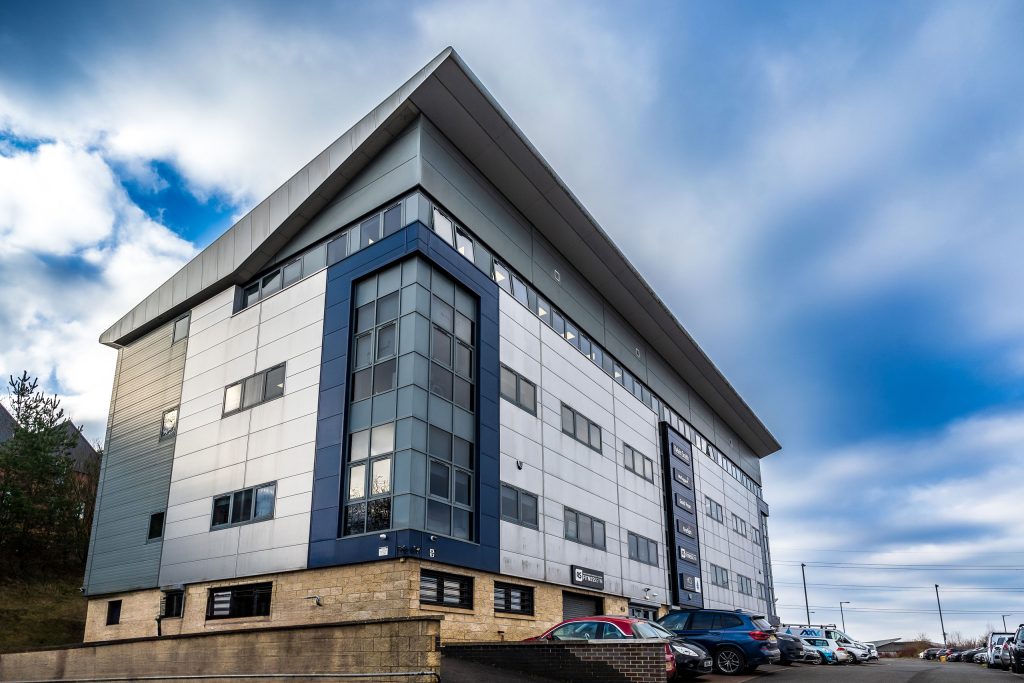The hidden dangers lurking in showers, spas, and cooling towers and how to keep your hotel in the clear
A guest checks into your hotel for a well-earned break. They marvel at your immaculate lobby, appreciate the attentive service and sink into the plush bedding with a contented sigh. Then they take a shower and unknowingly inhale a potentially deadly bacteria that’s been quietly multiplying in your water system for months.
Not exactly the five-star experience you were aiming for, is it?
At HCS Water Treatment, part of Premier Technical Services Group Ltd (PTSG), we’ve worked with some of the UK’s leading hospitality providers, including major chains like Whitbred with their portfolio of 1320+ properties. We understand the unique water safety challenges hotels face and why they can’t afford to get Legionella control wrong.
Why Hotels Are Prime Real Estate for Legionella
Hotels create a perfect environment for Legionella to thrive, combining several critical risk factors:
1. Fluctuating Occupancy Patterns
The very nature of hotel operations creates water stagnation risks:
- Seasonal occupancy fluctuations (think coastal hotels in winter)
- Rooms that may sit vacant for days or weeks
- Entire floors or wings that might be closed during quieter periods
- Conference facilities used sporadically
- VIP suites reserved for occasional use
Each of these scenarios creates opportunities for water to sit unused in pipes giving Legionella the warm, stagnant conditions it loves.
2. Luxury Features = Legionella Risks
The very amenities that attract guests also create perfect environments for bacterial growth:
- Spa Facilities: Hot tubs, jacuzzis, and hydrotherapy pools maintain water at the ideal temperature for Legionella growth (20-45°C)
- Decorative Water Features: Those elegant fountains in your lobby create aerosols that can spread bacteria
- Rainfall Showers: High-end shower experiences often involve more complex plumbing and generate more aerosols
- Swimming Pools: Especially indoor pools with associated water features and showers
- Cooling Towers: Often found in larger hotels with central air conditioning systems
3. Complex Water Systems
Modern hotels often feature sprawling, complex water networks:
- Multiple rising mains and distribution systems
- Numerous storage tanks serving different zones
- Extensive pipe runs with potential dead legs
- Complex hot water circulation systems
- Mixing valves to prevent scalding
This complexity creates numerous points where temperature control might fail and bacteria can establish colonies.
4. Operational Pressures
The practical realities of hotel operations can compromise water safety:
- Pressure to turn rooms around quickly between guests
- Maintenance access restricted by guest occupancy
- Cost-cutting measures that might reduce monitoring
- Staff turnover affecting training and consistency
- 24/7 operation leaving limited windows for system maintenance
Real-World Consequences: When Hotels Get It Wrong
The hospitality industry has seen numerous Legionella outbreaks with serious consequences. A five-star spa hotel became the epicentre of a Legionella outbreak that affected 12 guests. The source? Their luxurious spa facilities where inadequate disinfection and poor temperature control created the perfect breeding ground for bacteria. The hotel faced:
- Regulatory fines exceeding £150,000
- Civil claims from affected guests
- Complete closure for six weeks during investigation and remediation
- Devastating reviews and media coverage that took years to overcome
A well-known business hotel chain discovered Legionella in multiple properties during routine testing. Investigation revealed systematic failures in their water management programme, including:
- Inadequate temperature monitoring
- Poor record-keeping
- Insufficient staff training
- Incomplete risk assessments
While fortunately caught before causing illness, the chain still faced enforcement notices, significant remediation costs and operational disruption across multiple properties.
The Regulatory Framework: What Hotels Must Do
Hotels in the UK face clear legal obligations regarding Legionella control:
Health and Safety at Work Act 1974: Establishes the fundamental duty of care to employees and guests. Courts have repeatedly confirmed that this duty extends to protecting against waterborne diseases.
Control of Substances Hazardous to Health (COSHH) Regulations 2002: Specifically requires employers to control substances hazardous to health, including biological agents like Legionella.
L8 Approved Code of Practice: Provides practical guidance on meeting legal requirements. While not law itself, courts regard L8 as evidence of good practice, and deviations require justification.
HSG274 Technical Guidance: Offers detailed, practical advice on controlling Legionella in different types of water systems, including those commonly found in hotels.
Local Authority Enforcement: Hotels are subject to environmental health inspections, which increasingly include Legionella control measures particularly following publicised outbreaks.
The Critical Control Points: Where Hotels Need to Focus
Effective Legionella control in hotels requires attention to several key areas:
1. Guest Room Management
- Regular flushing of rooms with low occupancy
- Systematic approach to returning rooms to service after vacancy
- Particular attention to suites with multiple showers, baths, or spa features
- Consideration of automatic flushing systems for infrequently used outlets
2. Spa and Leisure Facility Controls
- Rigorous water treatment and monitoring regimes for swimming pools, spas, and hot tubs
- Strict temperature control and disinfection protocols
- Regular cleaning and replacement of filter media
- Specific staff training on water safety for leisure facilities
3. Cooling Tower Management
For hotels with cooling towers:
- Comprehensive risk assessment and written scheme of control
- Regular microbiological testing
- Effective water treatment programmes
- Drift eliminator maintenance
- Regular cleaning and disinfection
4. Seasonal Considerations
For properties with significant occupancy fluctuations:
- Proper shutdown procedures for quieter periods
- Regular flushing of low-use areas
- Comprehensive recommissioning protocols before peak season
- Heightened monitoring during transitional periods
5. Staff Training and Awareness
- Role-specific training for maintenance, housekeeping, and spa staff
- Clear procedures for reporting water system concerns
- Defined responsibilities for water safety tasks
- Regular refresher training to address staff turnover
The HCS Hotel Water Safety Approach
At HCS Water Treatment, our experience with major hospitality providers like Whitbred has helped us develop a hotel-specific approach to Legionella control. We understand the unique challenges of maintaining water safety while delivering the exceptional guest experience hotels strive for.
Our hotel water safety programme combines:
1. Hospitality-Focused Risk Assessment
We conduct detailed risk assessments specifically designed for hotel environments, identifying:
- Occupancy pattern implications for water safety
- High-risk facilities like spas and cooling systems
- Complexities in water distribution systems
- Operational challenges specific to hotel environments
2. Minimally Disruptive Implementation
We understand that hotels can’t simply shut down for water safety work:
- Phased implementation approaches to minimise guest impact
- Out-of-hours servicing where possible
- Close coordination with housekeeping and front-of-house teams
- Discrete execution that doesn’t detract from the guest experience
3. Hospitality-Specific Technology
Our technology solutions are adapted to hotel requirements:
- ZetaSafe Dashboard for real-time compliance monitoring
- Remote temperature monitoring to reduce need for room access
- Electronic flushing records that integrate with property management systems
- Digital documentation for smooth handover between shifts
4. Staff Training for Hospitality Teams
We provide specialised training for hotel staff:
- Role-specific water safety training for housekeeping, maintenance, and spa teams
- Practical guidance integrated with existing procedures
- Visual aids and quick-reference materials for daily tasks
- Multilingual options to support diverse staff teams
5. Seasonal Support
For hotels with fluctuating occupancy:
- Custom programmes for low-season maintenance
- Opening and closing procedures for seasonal properties
- Enhanced monitoring during shoulder seasons
- Flexible servicing schedules aligned with occupancy patterns
Why Proper Water Management Makes Financial Sense
Beyond the obvious health and safety imperatives, there’s a compelling business case for investing in proper water management:
Protecting Your Reputation
In an age of instant reviews and social media, news of a Legionella case linked to your property can cause immediate and lasting damage. Consider:
- The long-term impact on booking rates
- The effect on rate potential during recovery
- The cost of reputation management and PR
- The persistent association with illness in online reviews
Operational Continuity
A Legionella outbreak or even a significant detection can cause:
- Partial or complete closure during investigation and remediation
- Cancelled bookings and forced relocations
- Disruption to revenue-generating facilities like restaurants and spas
- Staff redeployment from regular duties
Cost Efficiency
Preventative water management is invariably more cost-effective than emergency response:
- Planned maintenance costs versus emergency remediation
- The financial impact of unexpected closures
- Legal and consultation fees during investigations
- Potential compensation to affected guests
- Insurance implications and future premium increases
Practical Next Steps for Hotel Operators
If you’re responsible for a hotel property, here are the essential actions to take now:
1. Review Your Current Water Safety Status
- When was your last Legionella risk assessment?
- Is it specific to your property and operations, or generic?
- Has it been reviewed following any changes to the building or its use?
- Are all water systems covered, including leisure facilities?
2. Evaluate Your Monitoring Programme
- Is there a comprehensive temperature monitoring schedule in place?
- Are records complete, accurate, and readily available?
- Do protocols address rooms with low occupancy?
- Is there clear ownership of water safety tasks?
3. Assess Staff Knowledge
- Do key staff understand their role in water safety?
- Has training been refreshed to account for turnover?
- Do staff know how to identify and report concerns?
- Is water safety included in induction for new team members?
4. Consider Technological Solutions
- Could remote monitoring improve compliance while reducing disruption?
- Would automated flushing systems be appropriate for certain areas?
- Could digital record-keeping improve consistency and access?
- Would temperature monitoring technology reduce the burden on staff?
5. Plan for Seasonal Variations
- Are there protocols for managing areas during low occupancy?
- Is there a system for tracking which rooms need flushing?
- Are recommissioning procedures documented and followed?
- Is monitoring increased during transitional periods?
The Guest Experience You Don’t Want to Deliver
Hotels are in the business of creating memorable experiences but not the kind that involves hospital stays, health department investigations, and litigation.
Your guests choose your property for comfort, service, and perhaps a touch of luxury. They’re paying for an experience that enhances their wellbeing, not one that puts their health at risk. When they turn on that rainfall shower or sink into that bubbling spa, they’re trusting that every aspect of your operation is managed to the highest standards.
Water safety might not appear on your list of guest amenities, but it’s a fundamental expectation one that, if compromised, can override every other positive aspect of their stay.
Concerned about Legionella risk in your hotel property? Contact HCS Water Treatment today on 0141 212 7247 or email us at hello@hcsuk.org to discuss how our hospitality-focused water safety services can help you protect your guests, your reputation, and your business. Because your guests deserve luxury, not lung disease.


